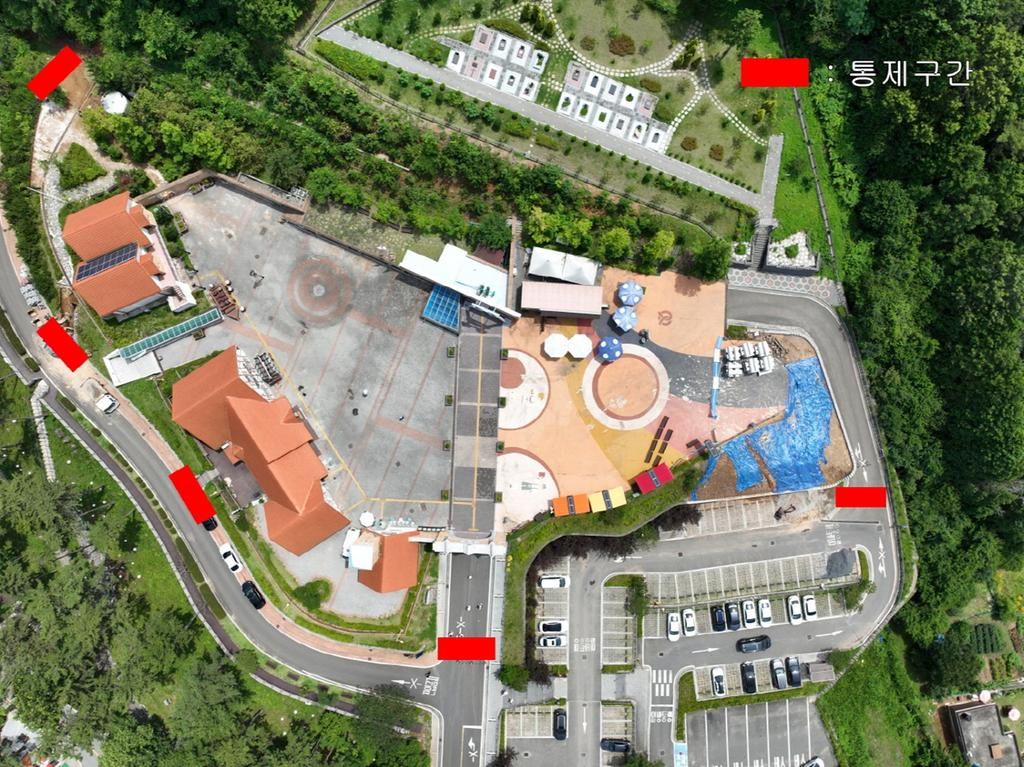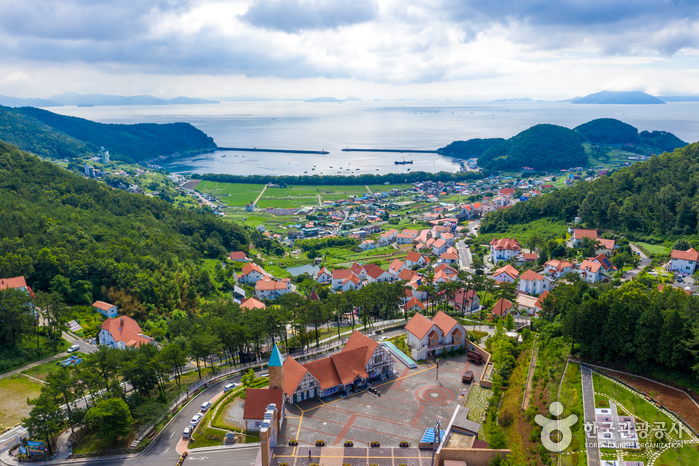
Namhae German Village, located in Namhae, South Gyeongsang Province, is scheduled to undergo a partial renovation starting on Feb. 13. The village has long been recognized for its distinctly foreign ambience in South Korea.
Hoping to improve visitors' travel experience, Namhae German Village will replace the sidewalks and install a sound system around the village’s plaza, according to Namhae County on Thursday.
Shops and facilities nearby the affected area, including Namhae German Exhibition Hall, popular restaurant Deutscher Imbiss and a souvenir shop, will be closed. Travelers will also be restricted from the area from Feb. 13 to March 31.
Meanwhile, other sections of Namhae German Village and its accommodations are to remain available to travelers during the renovation period.
“We decided to conduct the renovation after the Lunar New Year's holiday in February to minimize the inconvenience of the tourists and Namhae residents. As the construction is to improve Namhae German Village, we wish for your generous understanding, love and support,” a Namhae County official said in the latest press release.

Namhae German Village, which was built for Korean residents who had lived in Germany to earn foreign currency during the modernization of South Korea in the 1960s, became a popular tourism spot.
The village is home to an annual beer festival in late September and early October, featuring German cultural performances, beer-related games, competitions, food and exhibitions related to the history of South Korean nurses and miners in the 1960s to 1970s.




















